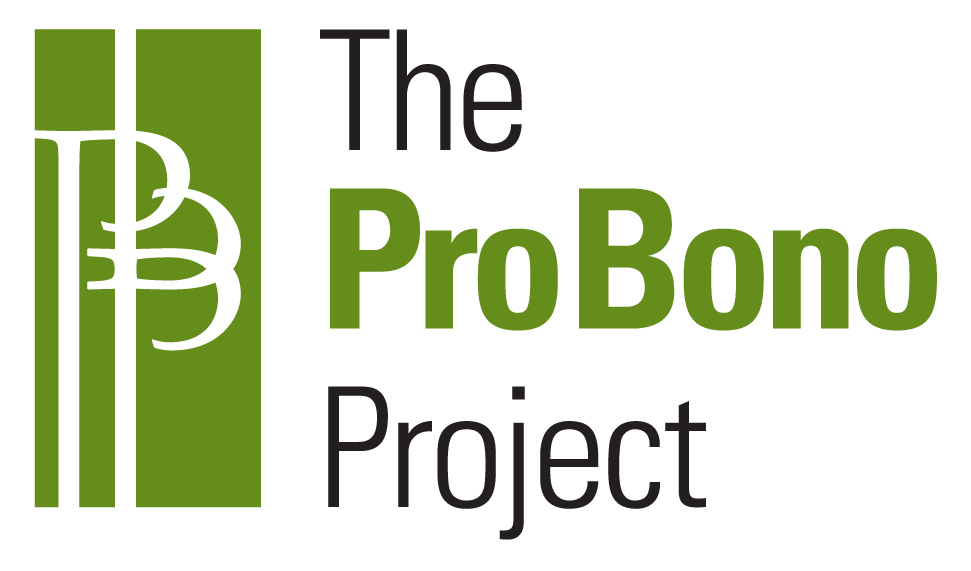Self-Help Resource Centers (SHRC) - Domestic
What is a Self-Help Resource Center?
A Self-Help Resource Center is a place where you can find helpful information and services about your legal problem if you are not represented by an attorney. Legal information includes court forms and tools to help you complete court forms, answers to general questions about court process or procedure, and help preparing for your day in court.
How can the Self-Help Resource Centers in Orleans and Jefferson Parish help?
While individuals (also known as litigants) are encouraged to have a lawyer represent them, financial limitations sometimes prevent many from securing counsel. Both the 24th Judicial District Court (JDC) in Gretna and the Orleans Civil District Court (CDC) in New Orleans have information and court-approved forms for self-represented litigants.
The Self-Help Resource Centers are managed by The Pro Bono Project and staffed with our volunteers who can help individuals navigate the justice system.
Volunteers provide court-approved forms and answer basic questions about how the court process works. When a complicated legal issue arises, individuals are offered resources on available legal options including applying for legal aid and hiring an attorney.
What areas of law do the SHRCs provide information and resources on?
The most common issues for people seeking to represent themselves in state courts are domestic matters such as:
Divorces - Click here for information
Domestic issues, including protective orders - Click here for information
Custody, visitation, and child support - Click here for information
Name changes - Click here for information
I’m a resident of Orleans Parish. What services are provided by the Orleans Civil District Court Self-Help Resource Center?
The Orleans Parish Civil District Court Self-Help Resource Center is an operation of The Pro Bono Project, in partnership with the court and the clerk's office, and with funding from the Louisiana Bar Foundation.
The Self-Help Resource Center is a volunteer-driven service, offering court-approved forms and legal information to self-represented litigants in domestic (family law) matters. The center normally operates on Mondays, Wednesdays, and Fridays from 9 a.m. until 12 noon, excepting court holidays. Visitors must be signed in by 11:30 a.m. in order to receive service the same day. The Self-Help Resource Center is not a notary service, and volunteers will notarize only the court-approved forms available at the center.
The Self-Help Resource Center is not able to provide legal advice or representation, but can provide referral resources for those seeking legal advice or representation.
To access court-approved forms, please consult the Orleans Civil District Court’s Self Help Desk website.
For additional information on Orleans Civil District Court, please consult their website.
I’m a resident of Jefferson Parish. What services are provided by the 24th Judicial District Court’s Self-Help Resource Center?
The 24th Judicial District Court Self-Help Resource Center is an operation of The Pro Bono Project, in partnership with the court and the clerk’s office.The Self-Help Resource Center is a volunteer-driven service, offering court-approved forms and legal information to self-represented litigants in domestic (family law) matters. In-person operation of the Self-Help Resource Center is suspended, but volunteers currently can answer questions from 9 am - 12 noon, Monday through Friday, at 504-881-1171.
The Self-Help Resource Center is not able to provide legal advice or representation, but can provide referral resources for those seeking legal advice or representation.
To access court-approved forms, please consult the 24th Judicial District Court’s Self Help Desk website.
For additional information about the 24th Judicial District Court, please consult their website.
What other resources are there for self-represented litigants?
Louisiana Law Help | Free legal information and additional resources for the state of Louisiana
Self-Represented Litigants Law | Legal Resources for Self-Represented Litigant from the Louisiana Supreme Court
Uncontested Divorce, No Children or Property Orleans Parish | Resources for Orleans Parish residents seeking divorce with no children and no property
Grandparents Raising Grandchildren Information Center | Resources for Louisiana-based grandparents raising grandchildren
VINE - Victim Information Network | For the security of the victims of crime to locate incarcerated perpetrators
Free Legal Answers | Ask our volunteer attorneys a specific question about your civil legal issue. This is an income-based eligibility service.
What other information do you have about representing yourself in court?
Forms, Instructions, and Guides
Louisiana Supreme Court In Forma Pauperis form
In Forma Pauperis Information Sheet (Deferring filing fees)In The Best Interest | The factors judges consider when deciding custody matters
Divorce Statutes | Remember! A Self-Represented individual is presumed to know the law!!
You Can't Get Your Day in Court Without Proper Service! | The Importance of Proper Service
About This Page
TERMS AND CONDITIONS OF USE
The following is informational only. The Pro Bono Project is not providing legal advice to the public. The following information, including all files and hyperlinks therein contained, are guides for self-represented litigants. It is not legal advice and should not be considered as legal advice.
The Pro Bono Project will not answer questions about content or how it may pertain to an individual case, except as required by law. Those seeking guidance concerning a legal action should consult with an attorney.
This information does not, is not intended to, shall not be construed to, and may not be relied upon to create or to limit any rights, substantive or procedural, enforceable at law by any party in any matter, civil or criminal. Do not cite this material in filings with any Court; cite the applicable rules and law.
Warning to Incarcerated or Detained Persons: Please note that some parts of this information will not apply to actions filed by incarcerated or detained persons. Detained litigants are often required to comply with different statutes and Court rules. These rules may include—but are not limited to—the use of Court-approved forms where applicable and the exhaustion of administrative remedies prior to filing suit.

